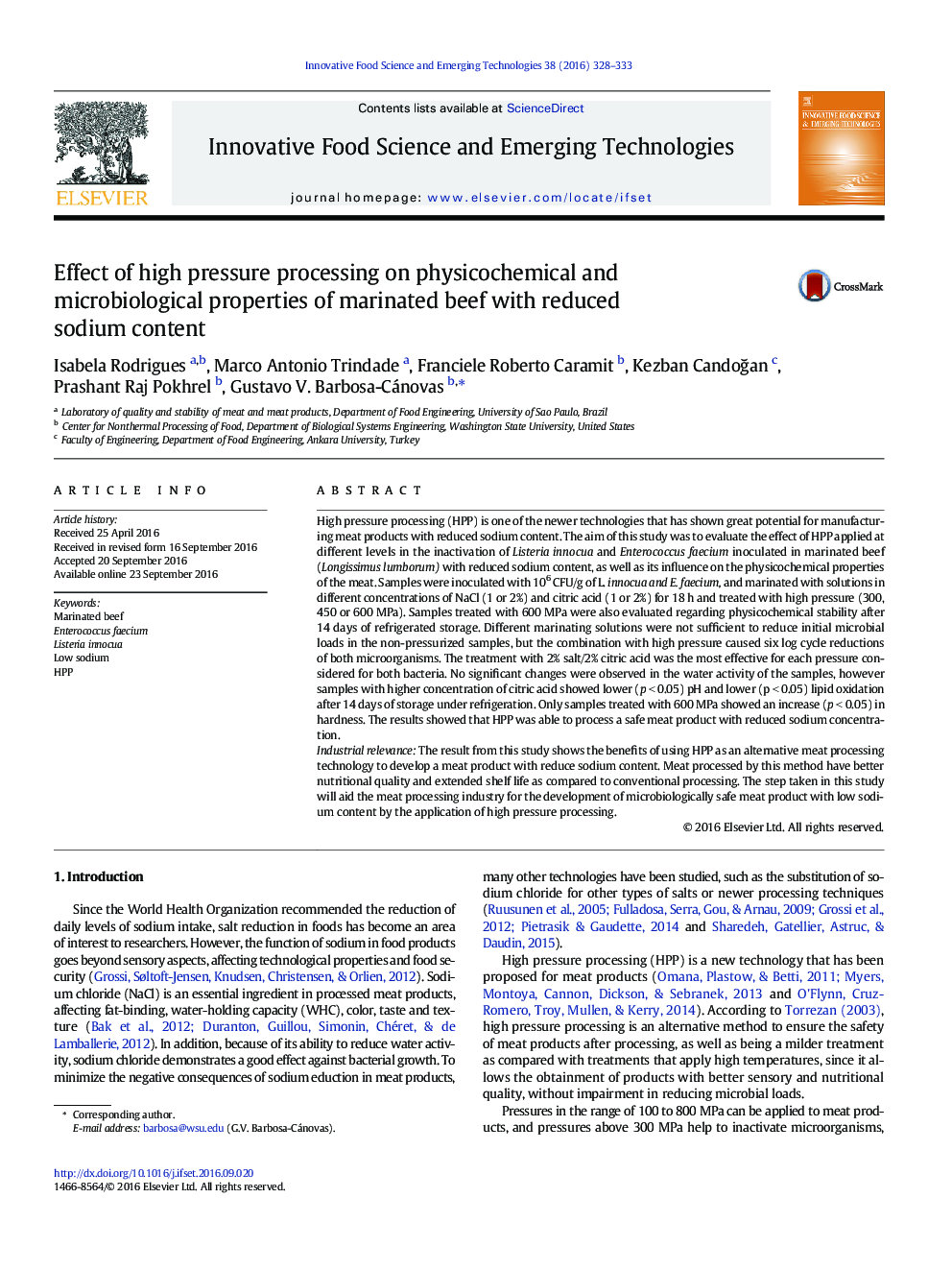| کد مقاله | کد نشریه | سال انتشار | مقاله انگلیسی | نسخه تمام متن |
|---|---|---|---|---|
| 5521827 | 1401279 | 2016 | 6 صفحه PDF | دانلود رایگان |
- E. faecium was more sensitive to citric acid than to sodium chloride levels;
- L. innocua was more sensitive to sodium chloride than to citric acid levels;
- 600Â MPa can inactivate six log cycles of L. innocua and E. faecium;
- The physicochemical parameter which was affected the most by HPP was shear force.
High pressure processing (HPP) is one of the newer technologies that has shown great potential for manufacturing meat products with reduced sodium content. The aim of this study was to evaluate the effect of HPP applied at different levels in the inactivation of Listeria innocua and Enterococcus faecium inoculated in marinated beef (Longissimus lumborum) with reduced sodium content, as well as its influence on the physicochemical properties of the meat. Samples were inoculated with 106 CFU/g of L. innocua and E. faecium, and marinated with solutions in different concentrations of NaCl (1 or 2%) and citric acid (1 or 2%) for 18 h and treated with high pressure (300, 450 or 600 MPa). Samples treated with 600 MPa were also evaluated regarding physicochemical stability after 14 days of refrigerated storage. Different marinating solutions were not sufficient to reduce initial microbial loads in the non-pressurized samples, but the combination with high pressure caused six log cycle reductions of both microorganisms. The treatment with 2% salt/2% citric acid was the most effective for each pressure considered for both bacteria. No significant changes were observed in the water activity of the samples, however samples with higher concentration of citric acid showed lower (p < 0.05) pH and lower (p < 0.05) lipid oxidation after 14 days of storage under refrigeration. Only samples treated with 600 MPa showed an increase (p < 0.05) in hardness. The results showed that HPP was able to process a safe meat product with reduced sodium concentration.Industrial relevanceThe result from this study shows the benefits of using HPP as an alternative meat processing technology to develop a meat product with reduce sodium content. Meat processed by this method have better nutritional quality and extended shelf life as compared to conventional processing. The step taken in this study will aid the meat processing industry for the development of microbiologically safe meat product with low sodium content by the application of high pressure processing.
Journal: Innovative Food Science & Emerging Technologies - Volume 38, Part B, December 2016, Pages 328-333
